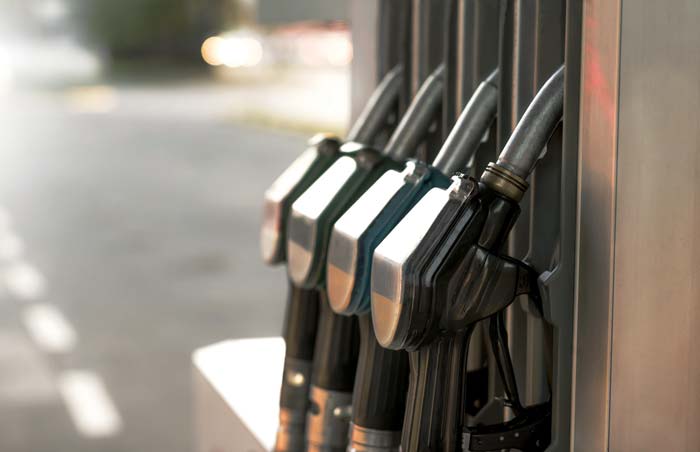



Summary
Indonesian biodiesel consumption to drop in H2 2017?

Dono Boestami, chief executive at the government agency Indonesia Estate Crop Fund, expects a slowdown in domestic biodiesel consumption in the last six months of 2017 due to “some technical difficulties”.
In the first six months, domestic biodiesel consumption reached 1.7 million kilolitres. However, this is expected to fall to 0.9 million kilolitres in the second half of the year, resulting in an estimated total of 2.5 million kilolitres in 2017. In the near future, Boestami wants to boost the consumption volume to 3.5 million kilolitres per year.
Through government sponsored programmes, local authorities encourage the production (and consumption) of biodiesel. Considering that Indonesia – which is Southeast Asia’s largest economy –is also the world’s biggest palm oil producer, it can produce palm biodiesel in a relatively cheap way.
Moreover, biodiesel consumption eases Indonesia’s rising reliance on imports of crude oil-based fuel and curbs the country’s greenhouse gas emissions. In the B20 biofuels programme that was launched in 2016, the government set a minimum 20% blend of bio-content in diesel fuel, up from 15% in 2015.
Meanwhile, Fadhil Hasan, board member of the Indonesian Palm Oil Association, said palm oil production will increase to 38.5 million tonnes in 2018, up from an expected 36.5 million tonnes in 2017.
Indonesia’s palm oil exports are expected to rise to 29 million tonnes in 2018, from an expected 28 million tonnes in 2017. Crude palm oil prices are likely to average between US$700 and $710 per tonne in 2017 on a CIF Rotterdam basis.
Source: www.indonesia-investments.com, Nov 3, 2017
US anti-subsidy duties hit biodiesel imports
In a final ruling released on Nov 9, the US Commerce Department set anti-subsidy rates in the range of 34.45-64.73% for palm biodiesel imports originating from Indonesia. This was slightly lighter than the preliminary 41.06-68.28% range set in August 2017.
The final duties for soybean-based biodiesel from Argentina were set in the range of 71.45-72.28%, higher than the preliminary countervailing rates set in August 2017. The government of Argentina said it may take the dispute to the World Trade Organisation (WTO).
The issue arose when US biodiesel producers complained about the ‘dumping’ of biodiesel in the domestic market by Indonesian and Argentine exporters. They were alleged to even sell their products below the market value.
Indonesian exporters are able to sell cheap palm biodiesel in the US because the government subsidises production through its B10, B15 and B20 programmes. Under these programmes, diesel is blended with a mandatory amount of fatty acid methyl ester (derived from palm oil). The programmes aim at limiting imports of fuel into Indonesia.
The Trade Ministry of Indonesia had earlier emphasised that the subsidy programme is only meant for biodiesel sold in the domestic market.
Also on Nov 9, Indonesia lost an appeal ruling at the WTO in a dispute with the US and New Zealand over restrictions on imports of food and animal products, such as meat and poultry. Indonesia had been setting import barriers due to health concerns, halal food standards, and to deal with a temporary surplus in the domestic market.
New Zealand and the US took the case to the WTO panel, claiming Indonesia’s move was a violation of their trade agreements. In December 2016, a panel of adjudicators faulted Indonesia, leading to the appeal and the ruling.
Source: www.indonesia-investments.com, Nov 10, 2017
India hikes import tax on edible oils to 10-year high

India, the world’s biggest edible oils importer, has raised the import tax on these products to the highest level in more than a decade, to try and support its farmers. The duty increase will lift oilseed prices and their availability for crushing in the domestic market, helping the country in capping edible oil imports in the 2017/18 marketing year, which started on Nov 1.
India doubled the import tax on crude palm oil to 30%, while the duty on refined palm oil has been raised to 40% from 25% earlier, the government said in an order. The import tax on crude soybean oil was increased to 30% from 17.5%, while on refined soybean oil it was raised to 35% from 20%.
Indian oilseed crushers have been struggling to compete with cheap imports from Indonesia, Malaysia, Brazil and Argentina that have reduced demand for local rapeseed and soybean, even after a steep fall in oilseed prices.
The second increase in import tax in less than three months will push up domestic edible oil prices and support prices of local oilseeds like soybean and rapeseed, said BV Mehta, executive director of the Mumbai-based Solvent Extractors’ Association.
Soybean and rapeseed prices have been trading below the government-set price level in the physical market, angering farmers. India relies on imports for 70% of its edible oils consumption, up from 44% in 2001/02.
Even after the duty increase, India will need to import about 15.5 million tonnes in 2017/18, down from earlier estimate of 15.9 million tonnes, but higher than last year’s 15 million tonnes, said Sandeep Bajoria, chief executive of the Sunvin Group, a vegetable oil importer.
“The duty hike will have marginal impact on imports. India has to import due to huge demand,” Bajoria said.
The government also raised the import duty on soybean, canola oil and sunflower oil.
Source: Reuters, Nov 17, 2017